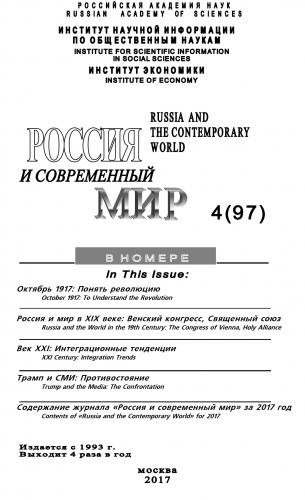3. Михайловский-Данилевский А.И. Мемуары, 1814–1815 гг. СПб.: Издательство Российской национальной библиотеки, 2001. 400 с.
4. Boudon J.-O. 1814, la campagne de France. Paris: Belin, 2014. 365 p.
5. Eynard J.-G. Au Congrés de Vienne. Journal de Jean-Gabriel Eynard / Publié avec une introduction et des notes par Édouard Chapuisat. Paris: Plon Nourrit et Cie, 1914. 338 p.
6. Kerautret M. Quelques réflexions sur l’historiographie française du Congrès de Vienne // Napoleonica. La Revue. 2015. N 1 (22). P. 87–103.
7. Kissinger H. Diplomacy. New York: Simon and Schuster Paperbacks, 1994. 912 p.
8. Lentz T. Le Congrès de Vienne, une refondation de l’Europe. 1814–1815. Paris: Perrin, 2013. 400 р.
9. Metternich C.W.L. de. Mémoires, Documents et écrits divers laissés par le prince Metternich. Paris, 1880–1884. T. 1. 545 p.
10. Rey M.-P. 1814, un Tsar à Paris. Paris: Flammarion, 2014. 329 p.
11. Rey M.-P. 1814, un Tsar à Paris. Paris: Champs Flammarion, 2015. 325 p.
12. Schroeder P.W. The Transformation of European Politics, 1763–1848. Oxford: Clarendon Press, 1994. 894 p.
13. Soutou G.-H. L’Europe de 1815 à nos jours. Paris: PUF, 2007. 515 p.
14. Weil M.-H. (ed). Les dessous du Congrès de Vienne: d'après les documents originaux des archives du Ministère impérial et royal de l'intérieur à Vienne. Paris: Payot, 1917. T. 1–2.
15. Zamoyski A. Rites of Peace: The Fall of Napoleon and the Congress of Vienna. New York: Harper Collins, 2007. 634 p.
Boudon J.-O. 1814, la campagne de France. Paris: Belin, 2014. 365 p.
Eynard J.-G. Au Congrés de Vienne. Journal de Jean-Gabriel Eynard / Publié avec une introduction et des notes par Édouard Chapuisat. Paris: Plon Nourrit et Cie, 1914. 338 p.
Kerautret M. Quelques réflexions sur l’historiographie française du Congrès de Vienne // Napoleonica. La Revue. 2015. N 1 (22). P. 87–103.
Kissindzher G. Diplomatija. Moscow: Ladomir, 1997. 903 p.
Kissinger H. Diplomacy. New York: Simon and Schuster Paperbacks, 1994. 912 p.
Lentz T. Le Congrès de Vienne, une refondation de l’Europe. 1814–1815. Paris: Perrin, 2013. 400 р.
Metternich C.W.L. de. Mémoires, Documents et écrits divers laissés par le prince Metternich. Paris, 1880–1884. Vol. 1. 545 p.
Mihajlovskij Danilevskij A.I. Zapiski 1814 i 1815 godov A. Mihajlovskogo-Danilevskogo, byvshego fligel'-ad’jutanta Gosudarja Imperatora Aleksandra Pavlovicha. Saint Petersburg, 1841. 252 p.
Mihajlovskij-Danilevskij A.I. Memuary, 1814–1815 gg. Saint Petersburg: Izdatel'stvo Rossijskoj nacional'noj biblioteki, 2001. 400 p.
Rey M.-P. 1814, un Tsar à Paris. Paris: Champs Flammarion, 2015. 325 p.
Rey M.-P. 1814, un Tsar à Paris. Paris: Flammarion, 2014. 329 p.
Schroeder P.W. The Transformation of European Politics, 1763–1848. Oxford: Clarendon Press, 1994. 894 p.
Soutou G.-H. L’Europe de 1815 à nos jours. Paris: PUF, 2007. 515 p.
Weil M.-H. (ed). Les dessous du Congrès de Vienne: d'après les documents originaux des archives du Ministère impérial et royal de l'intérieur à Vienne. Paris: Payot, 1917. Vol. 1–2.
Zamoyski A. Rites of Peace: The Fall of Napoleon and the Congress of Vienna. New York: Harper Collins, 2007. 634 p.
Священный союз и его интерпретаторы18
Аннотация. В статье рассматривается эволюция представлений европейских политиков и публицистов о Священном союзе в период между Венским конгрессом и подавлением европейских революций в 1823 г. Делается вывод о том, что все стремления проникнуть в суть замысла русского царя, равно как и либеральная критика Священного союза не раскрывают его подлинной сущности, которая и до сих пор во многом остается загадочной.
Ключевые слова: Священный союз, Александр I, европейская политика, Сен-Симон, Прадт, Шатобриан, Каннинг, Б. Констан, Люллен де Шатовье.
Парсамов Вадим Суренович – доктор исторических наук, профессор, главный научный сотрудник Института гуманитарных историко-теоретических исследований им. А.В. Полетаева, профессор Школы исторических наук Национального исследовательского университета «Высшая школа экономики», г. Москва. E-mail: [email protected]
V.S. Parsamov. The Holy Alliance and its Interpreters
Abstract. The article studies the evolution of the ideas of European politicians and journalists about the Holy Alliance in the period between the Congress of Vienna and the suppression of European revolutions in 1823. It concludes that the attempts to comprehend the plan of the Russian Tsar, as well as the liberal criticism of the Holy Alliance could not reveal its true identity, still remaining mysterious.
Keywords: The Holy Alliance, Alexander I, European politics, Saint-Simon, Pratt, Chateaubriand, Canning, B. Constant, Lullin de Sotovie.
Parsamov Vadim Surenovich – D. Hist. Sciences, Professor, chief research fellow of Poletaev Institute for theoretical and historical studies in the humanities, Professor, School of History, National research University «Higher school of Economics». E-mail: [email protected]
Первая
